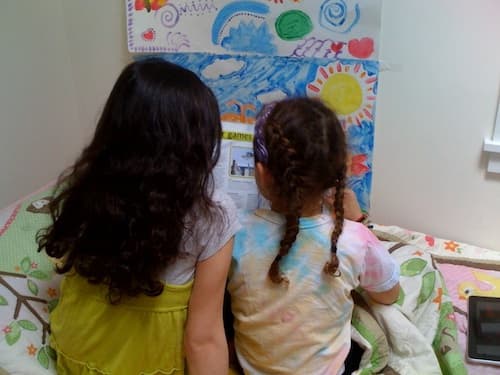Advertisement
Psychiatrist: Tips For Edgy Parents With Kids In Lockdown Mode

On Monday, Dr. Gene Beresin, a child psychiatrist at Massachusetts General Hospital shared some professional advice — How To Talk With Children About Boston Marathon Bombs — which has been posted on social media and passed around by thousands across this country and around the world.
Now, Dr. Beresin, director of the Massachusetts General Hospital Center for Mental Health and Media and his colleague Steven Schlozman, MD, assistant professor of psychiatry at Harvard Medical School and a staff child psychiatrist at Massachusetts General Hospital offer some more timely advice. This piece is for edgy parents at home with their kids in lockdown mode today (basically all of us) as police undertake a massive manhunt to apprehend the Boston Marathon bomber.
By Gene Beresin, MD and Steven Schlozman, MD
Guest Contributors
Boston is still reeling from the aftermath of the Marathon Bombing. Today, to everyone’s shock, we awoke to hear of a series of terrifying events that rocked Cambridge and Watertown – the shooting of an MIT officer, a terrifying car chase, explosions, and a shootout with one suspect killed. An MBTA officer was also wounded. The city and many local communities are locked down as the police, FBI, and other troops seek out the second suspect.
We are all told to stay home. Schools are closed as well as business and public buildings.
Haven’t we had enough? We certainly don’t have a template for this kind of thing.
In this extremely rare situation, what can parents do to care for their kids and themselves?
Well, first recognize that even the professionals (i.e. the experts in child development) aren’t trained for this kind of thing. That doesn’t mean we’re without guidance; it just means we have to knowledgeably improvise. To that end, common sense is the best compass for all of us.
Here are some tips:
--To the extent that you can, turn off the TV, computers and radio. Of course, you’ll also need to hear about the events as they unfold, so when you check in on the news, be sure your kids, particularly the young ones are not within ear or eyeshot
--Contact relatives, neighbors and friends to be sure they are safe and to let them know that you are OK. Contact matters now. The traumatic effects that follow are often caused by lack of communication.
--Let the kids know what is happening in general terms: the police have found one of the bombers and are searching for the other one. They want everyone to stay home to be safe. We’ll find something to do as a family, and it is the job of the parents to keep things safe.
--Kids in families are of different ages. Older kids will want to know details; they master their anxiety through putting events in context. But little kids will have a different take. “Are the bad men outside?” (Answer: no, they’re not outside our house.)
--Remember to help your older children to avoid traumatizing the younger children. Be very concrete: it is your job, as the parent, to talk to the younger kids. The older children might want to process endlessly, but that kind of processing, while potentially helpful for a teen, is going to unnerve the grade school child.
--At the same time, don’t be surprised at the response of your children. So far, my own kids and their friends are most annoyed to have a beautiful day disrupted. Smile and reassure at this understandable sentiment. Don’t criticize them for missing the point.
--For younger kids, play games, do projects together, cook, and try to have fun, despite your concerns.
--For older school-age kids and teens, allow them to check in with their friends by texting, calling or email, but keep their conversations to a minimum to prevent spreading rumors and more fear. However, be aware of instructions to limit cell phone use and respect those instructions while acknowledging how difficult it all is to understand,.
--Teenagers also need to feel safe, and should be sure their friends are secure. I would involve them with the others. This is a time to stay together if at all possible.
--If a parent has to go to work or is out of town, try to have frequent contact so everyone knows folks are safe. Hugs all around.
--If you want to watch videos or movies, try to focus on happy themes to take the edge off of anxiety and fear. This is no time for violent or action films!
--Keep some means of being aware of latest announcements by keeping your landline, cellphone or radio near, but if possible take it away from earshot of the kids. YOU need to be the interpreter of any directives.
Readers, any specific questions lingering in your minds? Please post questions below, or tweet Dr. Beresin at @GeneBeresinMD. And here is another post by Dr. Schlozman: Psychiatrist And Dad: Trying To Make Sense Of One Attack After Another.
This program aired on April 19, 2013. The audio for this program is not available.
